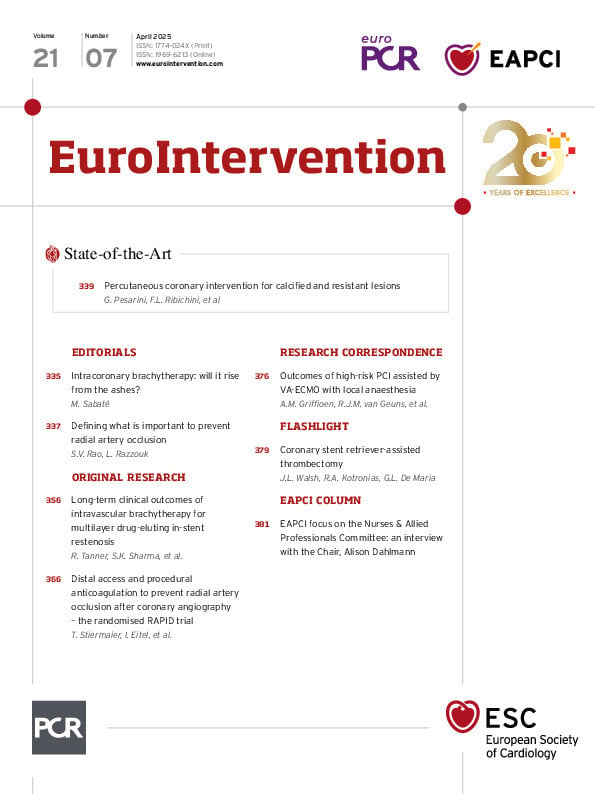Abstract
Background: Distal transradial access (TRA) and procedural anticoagulation (AC) are among the strategies to prevent radial artery occlusion (RAO) that have some gaps in evidence.
Aims: This study assessed the efficacy and safety of different radial access sites and procedural AC in patients undergoing coronary angiography (CAG).
Methods: The RAPID trial is a single-centre, open-label, 2x2 factorial study that randomised patients to procedural AC versus no procedural AC and also to distal versus conventional TRA with further stratification according to pre-existing oral AC. Patients with indicated percutaneous coronary intervention (PCI) were excluded from the analysis. The primary endpoints were the incidence of RAO, assessed by vascular ultrasound, and bleeding events.
Results: The trial was stopped early for efficacy by the data and safety monitoring board after the second preplanned interim analysis and inclusion of 600 participants. Excluding patients with indicated PCI, the final study population consisted of 439 patients. Distal TRA was associated with more access site crossovers (14.9% vs 8.3%; p=0.032) and a longer total procedure time (25 min vs 20 min; p=0.001) than conventional TRA. The rates of RAO (20.3% vs 21.2%; p=0.810) and bleeding events (4.1% vs 6.9%; p=0.188) were similar after distal and conventional TRA. In contrast, procedural AC reduced the incidence of RAO (7.3% vs 33.9%; p<0.001) without increasing bleeding risk (7.3% vs 3.6%; p=0.087). These results were consistent in patients on pre-existing oral AC and those with distal TRA.
Conclusions: While distal TRA did not reduce the risk of RAO, procedural AC proved effective in all patients undergoing transradial CAG including those on pre-existing oral AC. (Strategies to Maintain Radial Artery Patency Following Diagnostic Coronary Angiography [RAPID] trial; ClinicalTrials.gov: NCT04301921 [RAPID-1] and NCT04362020 [RAPID-2])
Sign up for free!
Join us for free and access thousands of articles from EuroIntervention, as well as presentations, videos, cases from PCRonline.com

